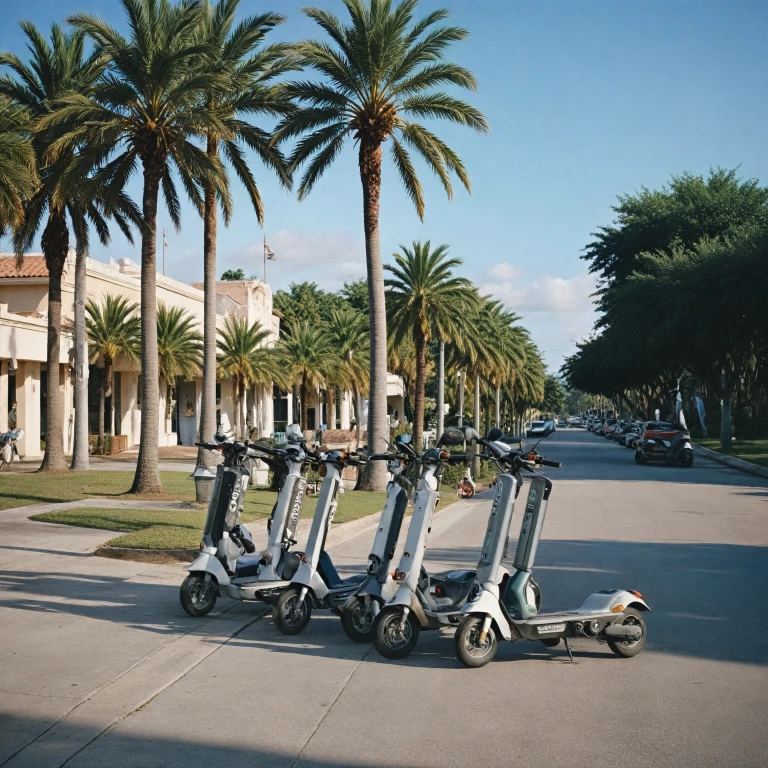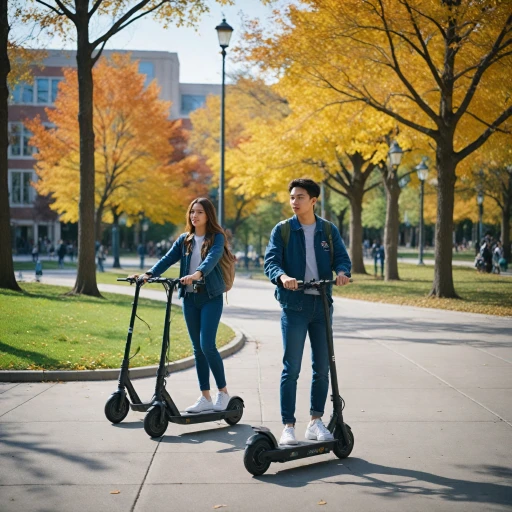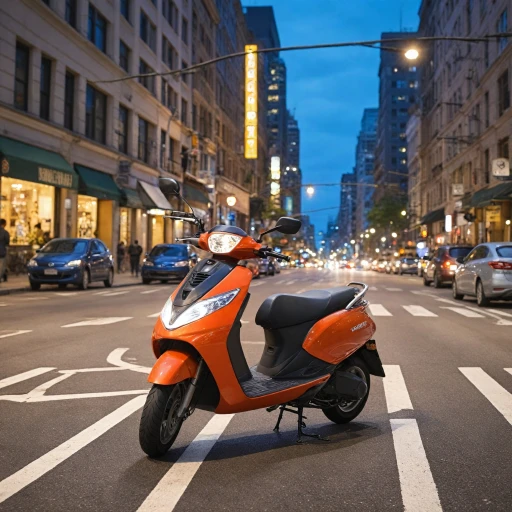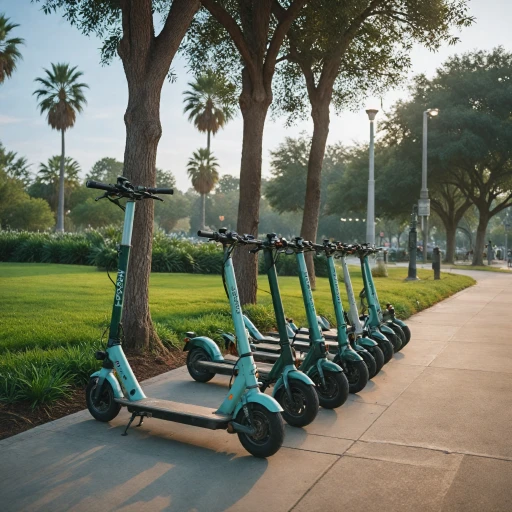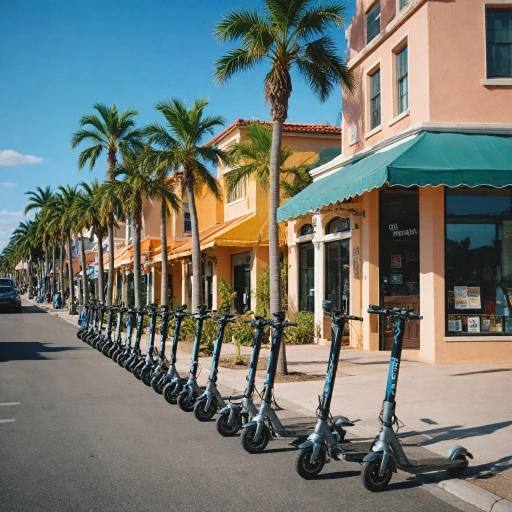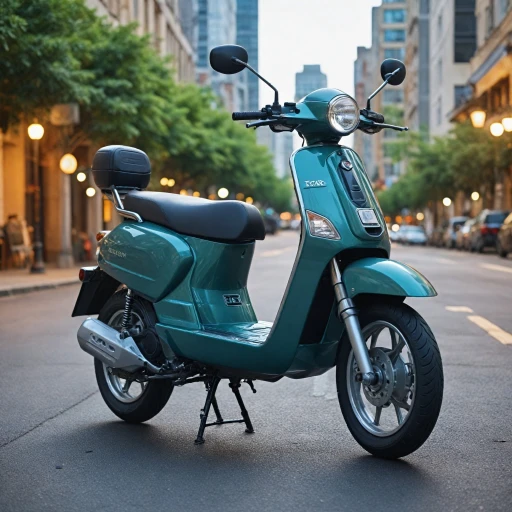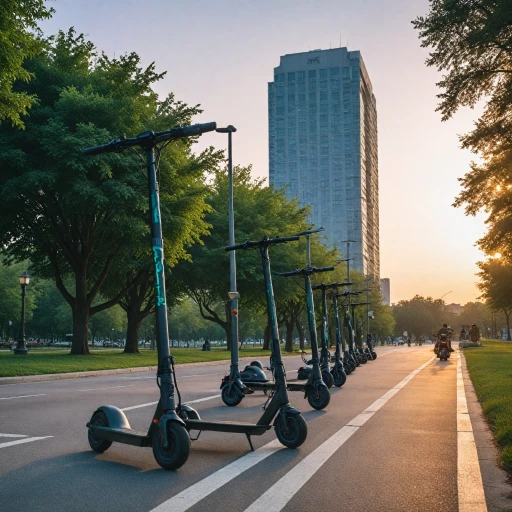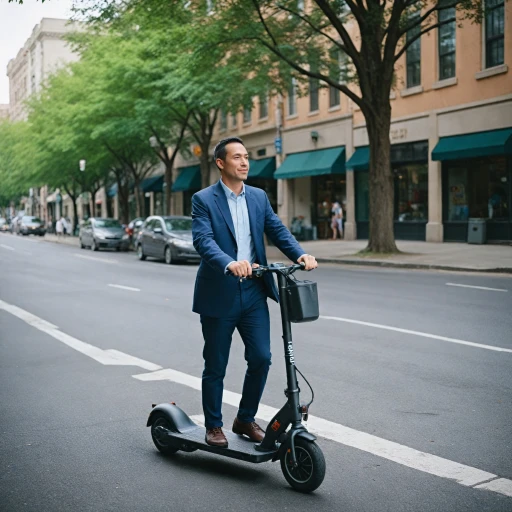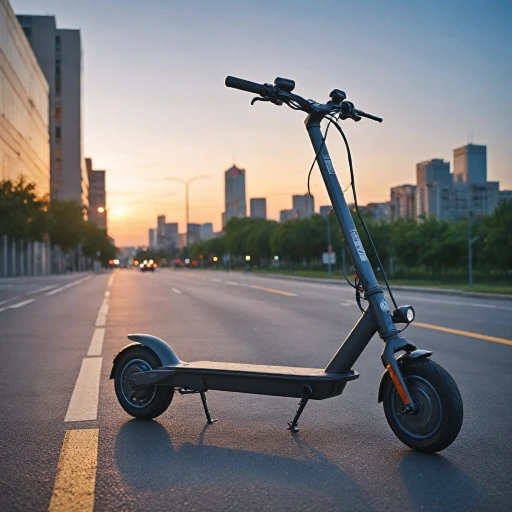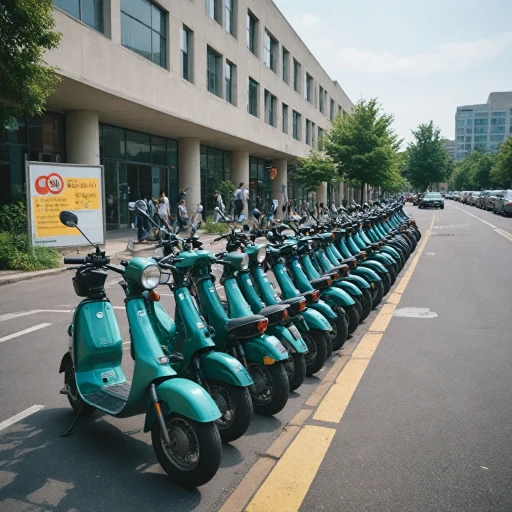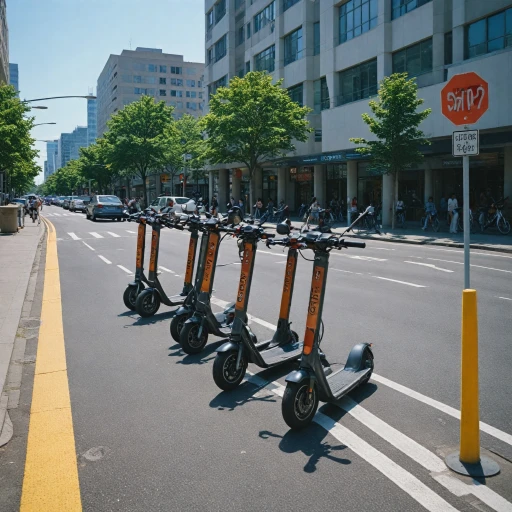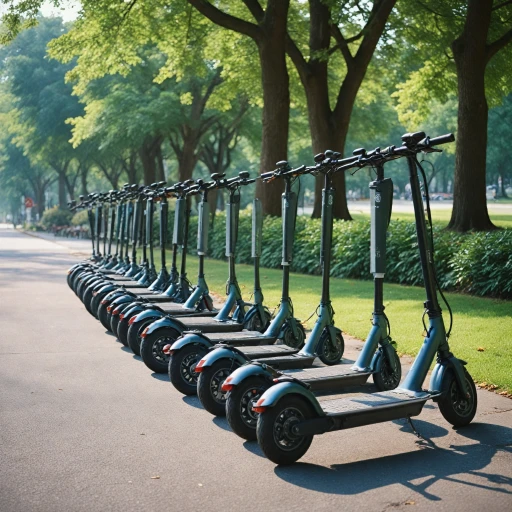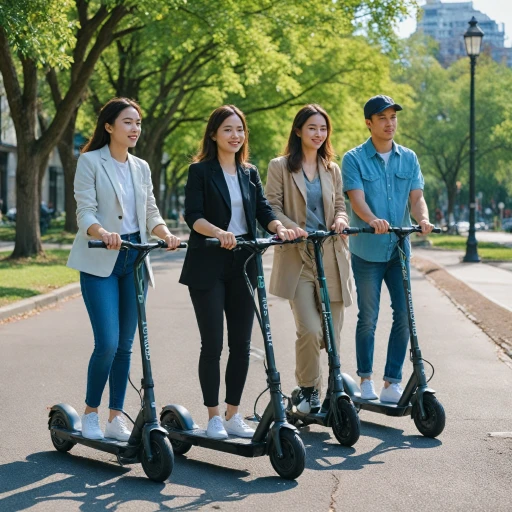
Overview of Florida's Motorized Scooter Laws
Navigating the Framework of Current Regulations
In the state of Florida, understanding how motor scooters are governed within the legal landscape is essential for both enthusiasts and daily commuters. At the heart of the regulation structure lies the state's commitment to ensuring safety while promoting efficient transportation options.
Motorized scooters in Florida aren't classified the same way traditional motor vehicles are. The key distinction is that scooters are typically required to operate under similar rules to bicycles, not cars. This divergence is crucial as it affects registration, insurance, and license requirements.
What Defines a Legal Scooter?
In Florida, a "motorized scooter" is defined as a vehicle powered by an electric motor with or without a seat or saddle for the rider. It must also be incapable of speeds exceeding 30 miles per hour on level ground. While federally, electric scooters under 750 watts are typically not considered motor vehicles, Florida law aligns with a broader interpretation to ensure safety on public roads.
Licensing and Operator Requirements
In contrast to motorcycles or mopeds, individuals operating a motorized scooter in Florida do not require a driver license. However, scooter riders must adhere to all regular traffic laws. According to Florida statutes, wearing helmets and other protective gear isn't mandatory for riders over 16 unless they are riding at speeds surpassing a certain threshold—highlighting the state's ongoing dialogue about comprehensive safety measures.
Implications of Non-compliance
The repercussions of not following these regulations can be quite serious. Non-compliance can result in fines, citations, or personal injury due to accidents that could have been avoided. Vehicle operators should be aware that while scooters are a fun and efficient way to navigate urban settings, abiding by Florida law is non-negotiable.
Florida's dynamic legal framework for motor scooters reflects its commitment to balancing urban mobility with individual safety. As the use of electric scooters continues to grow, these regulations may evolve, impacting scooter riders and the broader discourse on motorized vehicle laws across the state.
Safety Measures and Equipment Requirements
Safety Precautions and Essential Gear
When riding motorized scooters in Florida, the importance of safety precautions and appropriate gear cannot be overstated. Florida laws prioritize the protection of riders by mandating certain safety measures and equipment requirements. Adhering to these regulations not only ensures compliance but significantly reduces the risk of personal injury.
Helmet and Protective Gear
One of the primary requirements for electric scooter riders in Florida is the use of helmets. While the law explicitly mandates helmet use for riders under 16 years of age, it is strongly recommended for all riders due to the risk of head injuries in the event of an accident. Additionally, wearing reflective clothing can enhance visibility, especially during night rides.
Other Required Equipment
- Lights and Reflectors: Ensuring your electric scooter is equipped with functioning front lights and rear reflectors is critical for night riding visibility.
- Brakes: Effective brakes are a must for any electric scooter to prevent accidents and ensure the rider can stop when necessary.
- Bell or Horn: A bell or horn is important for alerting pedestrians or other vehicles of your presence.
Legal Requirements and Obligations
Florida's scooter laws dictate certain legal obligations that riders must follow to ensure their safety and the safety of others. These include adhering to speed limits—generally capped at 30 miles per hour for motor scooters—and observing traffic signals and signs. Having a valid driver license for certain classes of motor vehicles is also necessary, depending on the scooter's motor capacity. It’s important for scooter riders to be aware of Understanding Electric Scooter Regulations in Florida for comprehensive guidance on navigating Florida's laws.
While these measures are set by law, practicing personal safety precautions can further minimize dangers. As such, securing a free consultation with a legal expert can elucidate any uncertainties you might have regarding compliance with Florida statutes and scooter-related incidents.
Impact on Urban Mobility and Environment
Contribution to Urban Mobility and Eco-friendly Solutions
The introduction of electric scooters in Florida has significantly influenced urban mobility. These nimble vehicles serve as a convenient alternative, especially for short-distance commutes in congested areas. Flexibility in navigating traffic and the ability to park easily have made them a popular choice among scooter riders. Motorized scooters provide an efficient solution to reducing travel time in bustling city centers. Public transportation options often encounter delays, but electric scooters offer a personal, on-demand alternative that complements existing modes of transportation. Environmental concerns also play a pivotal role in the adoption of scooters. Emitting virtually no carbon emissions, electric scooters are an eco-friendly choice. The reduced reliance on traditional motor vehicles helps to decrease air pollution, promoting an environmentally mindful landscape for cities in Florida. However, as Florida law evolves, so do the responsibilities of riders. Adhering to the state's scooter laws ensures legal compliance and safety for all involved parties. To make informed decisions about your personal vehicle choice, check out this informative guide on choosing the right electric scooter for specific needs. This resource provides valuable insights, especially for those new to the world of electric scooters. The collaboration between urban planning efforts and the growing popularity of electric scooters marks a positive trend towards sustainable transportation. They continue to benefit cities by providing an eco-friendly, efficient, and flexible commuting option for both residents and visitors in the state of Florida.Challenges and Controversies
Addressing the Risks and Criticisms
Florida's embrace of motorized scooters hasn't been without its share of challenges and controversies. The rapid proliferation of scooters in urban areas, coupled with evolving legal frameworks, has sparked debates regarding safety and public order. One significant concern is the safety of scooter riders and pedestrians. The state's statutes mandate that motorized scooters must adhere to specific regulations to mitigate risks. However, accidents and personal injuries continue to occur, highlighting the potential dangers associated with these compact vehicles. Reports of scooter accidents often emphasize high speeds, with some reaching up to several miles per hour. This increases the likelihood of incidents, raising questions about the adequacy of current safety measures and equipment requirements. Moreover, the legal landscape surrounding motorized scooters can be confusing. Florida law distinguishes between mopeds, electric scooters, and motorcycles, each with different licensing and operational requirements. This can lead to misunderstandings among riders about what constitutes a legal ride, ultimately contributing to unlawful situations and potential fines. Insurance and liability issues also come into play. In the event of an accident, determining fault and securing compensation can be complicated. The absence of uniform regulations across municipalities adds layers of complexity, often requiring scooter riders to seek a free consultation with legal experts to understand their standing in personal injury cases. Additionally, the congestion caused by these vehicles in urban centers raises environmental and social concerns. While scooters are promoted as sustainable transport devices, their sudden surge has led to challenges in urban planning and public space management. Overall, understanding the full impact of scooter laws in Florida involves scrutinizing the intersection of safety, legal regulations, and public reception. Policymakers, therefore, face the ongoing task of balancing innovation with effective governance to navigate these evolving challenges.Comparative Analysis with Other States
Comparison with Other U.S. States
When examining Florida's motorized scooter laws, it's insightful to compare them with the regulations in other states to understand how these laws stack up in terms of permissiveness and restrictions.
Several states have embraced the rise of electric scooters with open arms, crafting regulations that encourage their use while ensuring safety. Unlike Florida, some states allow motorized scooters on sidewalks, which can be a contentious issue due to potential risks of accidents and personal injuries. However, this is not the case in Florida, where electric scooters are generally prohibited from sidewalks, aligning more with walking and pedestrian safety laws.
For those considering riding an electric scooter in Florida, it's crucial to know that unlike motorcycles, a driver's license is usually not a requirement. This is more relaxed compared to states like California, where a motorized vehicle operator must have a driver's license, influencing who can legally use scooters. This could affect the demographic of scooter riders and potentially influence accident rates.
When exploring the legalities around helmets and other safety gear, Florida statutes are comparatively lenient. Riders under a certain age must wear helmets, a rule mirrored in states such as Texas and New York. Nevertheless, Florida's approach to speed limits for electric scooters, typically set to a maximum of 15 miles per hour, aligns with that of many states, aiming to mitigate scooter accidents on busy roads.
These variations reflect how state legislation shapes the accessibility and safety of motor scooters, contributing to the overall urban mobility ecosystem. For those navigating the legal world of electric scooters, understanding these nuances can be beneficial, especially when discussing scooter laws during free consultation sessions, or pursuing legal clarification regarding accidents or personal injury claims.
Future Trends and Developments
Anticipating Changes in Legislation and Technology
The landscape for electric scooters in Florida is rapidly evolving with continuous advancements in technology and potential shifts in legal frameworks. The state's current laws governing motorized scooters have made significant impacts on safety and urban mobility, but stakeholders are closely watching future developments.- Advancements in Scooter Technology: Electric scooters are increasingly being equipped with more sustainable batteries, enhanced safety features, and smarter navigation systems. These enhancements aim not only to improve rider safety and experience but also to reduce environmental footprints, thus addressing concerns raised around urban mobility issues.
- Legislative Response to Emerging Trends: As technology evolves, Florida, like other states, may need to adapt its regulations to align with innovation in the electric vehicle sector. This involves re-evaluating current legal definitions and requirements for motor scooters and mopeds, particularly in the realm of speed regulations, licensing, and road safety mechanisms.
- Comparative Insights: By looking at the experiences of other states, Florida can learn how different legislative approaches impact scooter proliferation and rider safety. States with more flexible vehicle classifications have seen varied outcomes related to personal injury rates and legal compliance by scooter riders.
- Potential Legal Revisions and Consultations: Given the diverse challenges and controversies related to electric scooters, Florida may see a push for revisions in the law to better balance personal freedom and public safety. Legal experts and authorities recommend free consultations for riders to better understand their rights and obligations under Florida statutes.
- Environmental and Economic Considerations: With a growing emphasis on sustainable transport solutions, motorized scooters offer a viable option for reducing urban congestion. Future laws could incentivize eco-friendly transportation, integrating scooters more effectively into public transport networks to minimize vehicular accidents.

